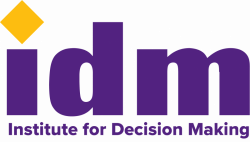IDM's Advisory Council Weighs in on Changing Roles in the Field of Economic Development
Posted on Monday, December 20th, 2021
In November the Institute for Decision Making (IDM) held its annual Advisory Council meeting at UNI. It was great to be able to bring the group together in-person this year! IDM’s Advisory Council is made up of individuals from economic development organizations, chambers of commerce, utilities, councils of government, community colleges, and state agencies. These individuals share their knowledge, experience and observations with each other, with IDM staff, and others from UNI. During this year’s meeting the group spent some time discussing how the roles of economic developers and economic development organizations (EDOs) are changing and evolving, and what those changes might look like moving forward. A number of themes surfaced from the discussion:
- A broader definition of economic development and who is served. Economic developers and EDOs are playing a larger role in community development and will continue to see that role expand. Economic development is becoming more about people rather than jobs, as was the focus in the past. They are and will continue to be, more involved with infrastructure development in their communities, including broadband, telecom, housing, even sewer and water. This will require great collaboration with local government, utilities and other providers. Additionally, “who” economic developers and EDOs assist and collaborate with will continue to expand due to a greater need to address economic disparities within their communities, as well as an increased focus on regional approaches to solving issues such as barriers to employment.
- An expanded focus on workforce and growing the population. Economic developers and EDOs are taking on new roles and bringing on new staff to address workforce barriers such as child care and housing. They are helping employers understand and address workforce barriers and identifying potential solutions, such as implementing strategies that provide workers with greater flexibility in work schedules or teleworking. Economic developers and EDOs are also going to be focusing on growing the population in their communities and regions which will likely require recruiting from diverse geographies and targeting diverse populations. This will likely increase the diversity of their communities’ populations, which will lead to a need to assist communities and employers in being welcoming and supportive of new cultures.
- Business retention & expansion efforts with a generational focus. Business retention & expansion (BRE) efforts will continue to be a top priority for economic developers and EDOs. An ever increasing focus will be on assisting owners of businesses within their communities access appropriate resources to help them successfully transition the ownership of their businesses to a next generation of local owners.
- A greater level of importance placed on obtaining and sharing information and data. Economic developers and EDOs will continue to play a critical role in educating local and state elected officials about the economic development process, the issues and challenges related to the process, and the critical economic development tools and programs used by EDOs and their communities. For economic developers, there is the ongoing need to help manage the expectations of their boards and community leadership regarding what defines success in economic development and what could be done in the community to achieve that success. With the unfortunate “politicization of everything” it is even more important for economic developers and EDOs to keep people informed, to build trust, and maintain strong relationships with their economic development partners and stakeholders. With their changing roles, economic developers and EDOs will need more useful and reliable sources of information, data and best practices.
- Ongoing financial and human resource challenges. Economic developers and their organizations often face resource challenges both for their operations and as leverage for development projects. These challenges are not going away and are becoming more acute due to a shrinking set of financial stakeholders in communities, as well as the aging out of community volunteers and civic leaders in communities.
In addition to discussing the changing and evolving roles of economic developers and EDOs, the Advisory Council also shared ideas about how IDM and other service providers might assist economic developers and EDOs with their changing roles. Here are some of the suggestions and ideas shared by the Council members:
- Continue to help EDOs, communities and other organizations with strategic planning to help them identify what they are and where they want to go in the future.
- Help economic developers, communities and other service providers to access and understand useful information and data, and provide useful information on specific topics, trends and best practices.
- Remain focused on helping economic developers, their organizations and their communities with their efforts and provide them with an outside perspective of what could be leveraged as part of their economic development efforts.
- Continue to help support and elevate the economic development profession in Iowa and assist economic developers with educating and informing their board leadership and staff, community leaders, and elected officials about the economic development process, economic development programs and tools.
IDM greatly appreciates the thoughts and ideas shared by our Advisory Council members. Their input each year provides us with guidance and “food for thought” as we chart our direction moving forward, continually striving to better serve our clients and their communities. We hope that the ideas shared here have spurred your thinking, and feel free to share your thoughts and ideas with IDM’s Director, Drew Conrad.

